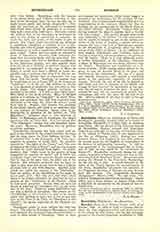

Bourdeilles, HELIE DE, Archbishop of Tours and Cardinal, b., probably, towards 1423, at the castle of Bourdeilles (Perigord); d. July 5, 1484, at Artannes near Tours. He was the son of the Viscount Arnaud de Bourdeilles. Having entered the Franciscan Order at an early age, he was only twenty-four when, at the request of Charles VII, he was appointed to the See of Perigueux (1447). During the wars between France and England he was held prisoner for several years by the English, in consequence of his defense of ecclesiastical immunity. In 1468 he was appointed to the Archiepiscopal See of Tours, and in 1483 he was raised to the cardinalate by Sixtus IV. Bourdeilles continued, during his episcopate, to practice religious poverty and was an intimate friend of St. Francis of Paula. He is mentioned among the Blessed in the Franciscan Martyrology for the 5th day of July. A stanch defender of the rights of the Church against the encroachments of the State, Bourdeilles advocated the abolition of the Pragmatic Sanction of Bourges, as may be seen from his treatise, “Pro Pragmaticae Sanctions Abrogatione” (Rome, 1486). He also wrote “Libellus in Pragmaticam Sanctionem Gallorum” (Rome 1484); and a Latin defense of Jeanne d’Arc which is attached in manuscript to the process of her rehabilitation.
N. A. WEBER

